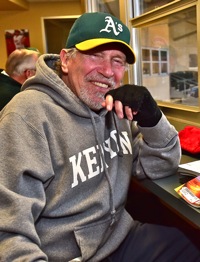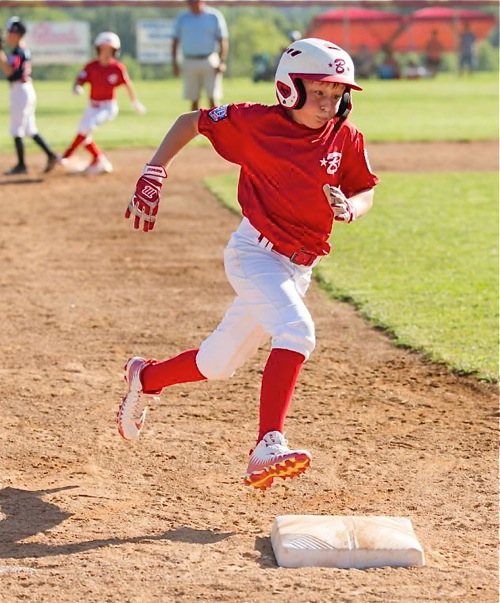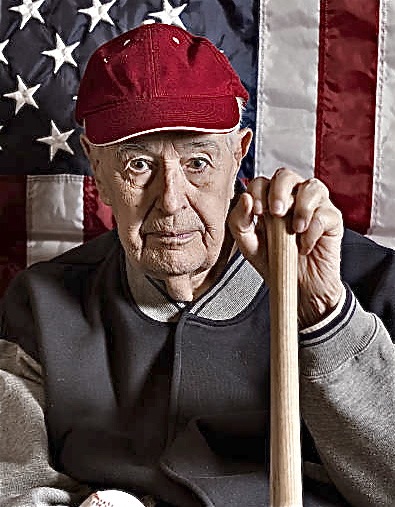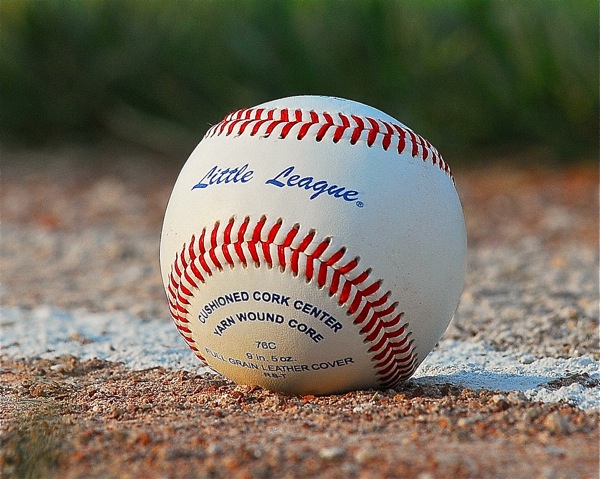There has been so much written and debated on the topic of winning in this space–some of it thoughtful and well-intended, some of it shallow and mean-spirited. But in the end words that my dad once said to me are everything I ever needed to know on the subject, and might come in handy even in this day of trophies before triumph.
CINCINNATI — Dad didn’t come to many games. If he did, I didn’t know it. He was very good at being inconspicuous. When he did show, he would saunter up after a game when we were all milling about and say something like, “Hey, boy, how ‘bout a root beer?”
Seeing him, realizing he had been there even awhile, made my night. One of those nights I have never forgotten and lately that evening has acquired new meaning.

Former Reds beat writer Greg Hoard writes baseball nostalgia for Press Pros Magazine.
Dad and I climbed into his Olds, always freshly shined, and set out on the short drive cross town to Lucas’ A&W Root Beer stand. We’d gone a block or two when Dad said, “So, how d’ya do?”
“Good,” I said. “I had two doubles, drove in a couple runs and scored one.”
As a rule, Dad drove slowly. He never seemed to be in a hurry, but I noticed he was slowing to a stop. He pulled the car over to the curb and turned off the engine.
“That’s not the question,” he said, turning so he was looking right at me, those big dark eyes bearing down on me like a couple of gun barrels.
“What was the score? You win or lose?” he said.
For a moment or two it was stone silent in the car, and for the life of me I couldn’t remember the score. I knew we had lost, knew, in fact, we had been beaten badly.
“We lost,” I said, finally, the words hanging in my throat.
“Yes, you did,” Dad said. “What was the score?”
I was stumped, nailed. He had me. I figured the frothy root beer I’d imagined had totally escaped me.
“You don’t know do you?” he said, never raising his voice, his eyes never leaving me. “The score was 12-to-3. So those two doubles of yours and those two RBIs didn’t count for enough. You got whupped.
“You got to do more and so do those yahoos who were laughing and joking in the dugout when you were getting beat so bad. That was the worst part. Coach shouldn’t allow that. Not for a minute.”
He sat there giving it more thought, then he reached up and started the car. The big V-8 fired and roared.

“You play the game to win the game. You protect your ground. Never be satisfied with going through the motions.”
“You play the game to win the game,” he said, his hand resting on the gearshift. “You protect your ground. You fight back. It’s never enough to just show up and go through the motions. You can never accept losing even if personally you are doing well.
“Where would this world be if everybody just said, ‘Oh, well, we lost. Fare the well. Doesn’t really matter. I got mine.
“If ya didn’t work to win this wouldn’t be a good place, boy, because the knot heads and idiots would rule the world. They’d just take everything and anything they wanted.
“You got to play as hard as you can and work as hard you can, and you got to let your teammates know you expect the same thing from them—the very best they got to give. Understand?”
I nodded, said I did, though I was still mulling it all over.
Dad smiled, “You sure, now? Doesn’t mean in just ball, but it’s a good start, like school. There’s a reason you get grades and a report card. It ain’t because you’re good lookin’ or you ain’t. You understand, right.”
“So an ‘A’ in school is like winning a game?” I said.
“Kinda,” he said. “You’re on the right track. Now, buck-up, son.”
I sat a little straighter, thought it all over.
“Still want that root beer?”

Schwieterman Custom Body Shop is pleased to support youth baseball on Press Pros.
I wanted it more than ever. He started the big Olds and we headed out of Beachwood Park toward the drive-in.
“By the way,” he said, looking into traffic on the main drag. “That was a real nice play you made out in left early in the game, cut that ball off in the gap, kept it front of you and then made a nice throw to second. Held that boy to a single. Made me proud.”
“Yeah?” I said.
“Sure did.”
Those few words meant more to me than a ten-dollar bill. We drank a couple of root beers from big frosty mugs, had some hot dogs and headed home.
I’ve held that memory close all my life, and I bring it up here and now because there has been so much written and debated on the topic of winning in this space–some of it thoughtful and well-intended, some of it shallow and mean-spirited.
Generally, I avoid such topics but this one—that our society places too much emphasis on winning—tests my comprehension, much like the sense of entitlement that threatens our society today.

My dad came from that generation…of men who fought in the major battles of World War II and could not accept losing. “Never accept losing, even if personally you’re doing well.”
Everything that needs to be said about winning and the value of winning was said in that Oldsmobile back in 1961 when I was 10; said by a man who had an eighth grade education, who fought at Normandy and in five major battles during World War II.
““You play the game to win the game,” he said, his hand resting on the gearshift. “You protect your ground. You fight back. It’s never enough to just show up and go through the motions. You can never accept losing, even if personally you are doing well.
“Where would this world be if everybody just said, ‘Oh, well, we lost. Fare the well. Doesn’t really matter. Or, I got mine so what the hell.
“If ya didn’t work to win—make things better—this wouldn’t be a good place to live, boy, because the knot heads and idiots would rule the world. They’d just take everything and anything they wanted.”
Certainly, one can make an argument against the notion of winning at all costs, and, assuredly, there have been those who have been driven to lunacy by the desire or demand to win. One can argue against almost anything – in the extreme.
Still, I will cling to my father’s wisdom and teachings when it comes to winning.
He was taken from us far too early. He went to work early one Saturday morning to repair a piece of heavy machinery that was not working efficiently and holding up work all over the plant.
The job was nearly done when there was an accident that, ultimately, led to dad’s death.
That morning, around daybreak on a June morning in 1974, my dad was doing the very best he could to do a good job; everything he could to help his company be the best it could be.
He was trying to win.

“You got to play as hard as you can and work as hard you can, and you got to let your teammates know you expect the same thing from them—the very best they got to give. Understand?”

